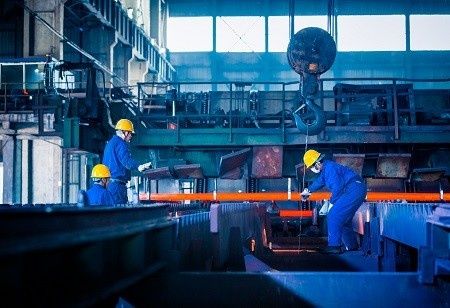
In April 2025, the Manufacturing Industry of Indonesia faced a sharper deceleration as the S&P Global Purchasing Managers' Index (PMI) dropped to 46.7-the lowest level in five months and down from 52.4 in March-indicating an outright contraction of the sector.
The decline was similarly reflected by the Industrial Trust Index (IKI) entering the contraction zone as it registered at 51.90 in April, down from 52.98 in March, and 0.40 points down from one year ago.
The Spokesperson for the Ministry of Industry (Kemenperin) Febri Hendri Antoni Arif in a written statement said, "This also indicates the optimism or confidence of domestic manufacturing industry players is decreasing amid the current uncertainty."
Contraction, according to industry observer Febri, corresponds to the protracted uncertainty in the manufacturing sector. Many industry players are moving to a "wait-and-see" stance, especially to determine outcomes of the ongoing negotiations between the Indonesian and U.S. governments. Clarity in policy direction and support are viewed as necessary to restore business confidence.
He added, "They are waiting for strategic policies from the government in providing protection to domestic industries to be competitive in the domestic market or host their own country."
Various industry associations have raised their concerns with the Ministry of Industry regarding the lack of clarity of policies and the increasing issues. Meanwhile, Indonesia had the largest PMI drop among ASEAN countries, while others like the Philippines buoyed by their domestic protection policies remained in expansion.
Other nations that have entered into a contracting PMIs include Thailand (49.5), Malaysia (48.6), and South Korea (47.5). Meanwhile, China, which still remains in expansion at 50.4, is already marked for a slowdown from the previous month.
"Our industry players are not only worried because of the enactment of the reciprocal tariff by President Trump, but they are more worried about the attacks on products from a number of countries affected by Trump's tariffs, because they can make Indonesia an alternative market. So, we will get the overflow or vomit of imported goods," Febri stated.
"This means that there is psychological pressure on the perception of business actors facing global tariff wars and flooding of imported products in the domestic market," he added.

